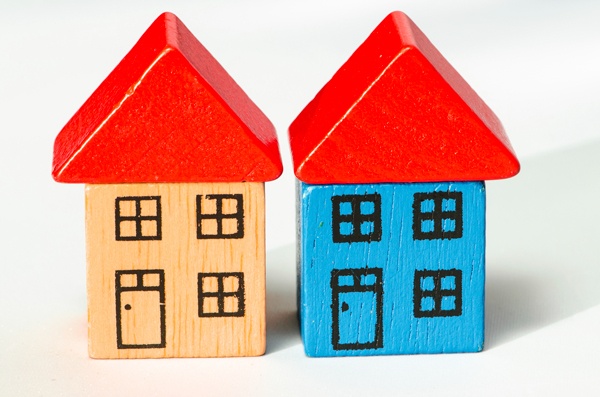Paying off two mortgages can be a huge financial burden. Here are five ways to make it more manageable.
For many people, the mortgage payment is the highest bill they have to pay each month. In New Hampshire and Vermont, it’s not unusual for people to be paying two mortgages on two different houses. The mountains, lakes, and ample opportunity for both summer and winter adventure make these states popular destinations for people looking to invest in a second home. Other people might decide to carry two mortgages because they’ve recently moved and aren’t able to sell their original house. Either way, if you’re paying two mortgages because you own two houses, you have a much higher debt burden than many Americans. Fortunately, there are ways to make sure you stay financially organized, even when you are responsible for paying out a large amount of money every month.
Try these five tips when juggling two mortgages.
- Make a budget and stick to it. When you have a lot of bills to pay, it’s important for you to know exactly where your money is going every month. If you haven’t already created a budget, it’s time to work out a plan showing how much income you can expect to make and how much of that money has to be spent on bills, such as your mortgage, car loans, and utilities. After doing this, you’ll be able to figure out how much you have leftover to spend on entertainment. Having a budget in place lets you determine if you can afford to keep paying the bills you already have, or if you need to start making cuts.
- Make a debt pay-off plan. After making a budget, the next most important thing you can do for your finances is develop a plan to pay off your debts. List all of your debts (mortgages, credit cards, car loans, etc.) along with the total amounts owed, minimum required monthly payments, and the interest rates. Once you have this list, work your way through your debt by applying any extra money in your budget to the loan with the highest interest rate. The goal is to pay down the mortgage on the property you’re not living in so that you can sell the home without paying money out of pocket.
- Rent out the other home. Being a landlord can be difficult, but it’s also one of the best ways to get someone else to pay off the mortgage on your second home. If you don’t live near your other home to handle maintenance issues, hire a property management firm to take care of the place. While you might not make enough to completely pay your mortgage every month, you’ll at least make a dent in the bill. In addition, having the place occupied can help reduce your insurance costs.
- Consider refinancing. If you’ve had both of your mortgages for a while, it might be a good idea to consider refinancing them into a single loan. Today’s low interest rates could mean that you can save thousands of dollars in interest by consolidating. It may also be possible for you to get a lower monthly payment thanks to a lower interest rate and/or a longer payment term. Even if your mortgages are relatively recent, it might still be possible to save some money or negotiate a lower payment.
- Think about selling. Many people decide not to sell their other home because they would lose money. However, it might be a better idea to take a small loss on the property than to make payments for years. There are ways to sell a home and take a loan for the remaining amount—these are typically referred to as bridge loans. You might also consider refinancing your current residence to raise the capital to sell your other home. A bank could also be willing to give you a personal loan for the remaining balance on the mortgage. While it can be difficult to accept taking a loss on the home, remember that’s it better to deal with loss now than waiting until major repairs or a falling market cause you to lose even more on the sale.
Dealing with multiple mortgages is a financial burden, but it doesn’t have to mean the end of your financial security. Take steps to get your loans paid off as quickly as possible.
